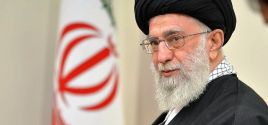Assange asks Ecuador for asylumThe WikiLeaks founder is motivated by one thing: a desire to avoid extradition to the U.S. Can anyone blame him?By Glenn Greenwald Jun. 20, 2012 |
Popular 
John Hagee Cheers Israel-Iran Battle as 'Gog and Magog War,' Will Lobby Congress Not to Deescalate

Right-Wing Media See Traffic Plummet in Wake of Algorithm Changes by Facebook, Google

Patriot ACT on Steroids: FISA Bill Forces 'An Enormous Range' of Businesses to Act as NSA Spies

Congress Introduces ADL-Backed 'Countering Antisemitism Act' to Police Online Speech

Reuters: Iran Gave 'Wide Notice' Days Before Attack on Israel
 Julian Assange was scheduled within days to turn himself over to British authorities for extradition to Sweden, where he is wanted for questioning in connection with a sexual assault case in which he has never been charged. Instead, Assange earlier today went to the Embassy of Ecuador in London and sought asylum from that country under the Universal Declaration of Human Rights. The Ecuadorian Foreign Minister, Ricardo Patino, issued a statement indicating that his government is “evaluating the request” and that Assange will remain under protection at the Embassy pending a decision. Ecuador may seem like a random choice but it’s actually quite rational. In 2010, a top official from that country offered Assange residency (though the Ecuadorian President backtracked after controversy ensued). Earlier this month, Assange interviewed that nation’s left-wing President, Rafael Correa, for his television program on RT. Among other things, Correa praised the transparency brought about by WikiLeaks' release of diplomatic cables as being beneficial for Ecuador ("We have nothing to hide. If anything, the WikiLeaks [releases] have made us stronger"). President Correa also was quite critical of the U.S., explaining the reason he closed the American base in his country this way: “Would you accept a foreign military base in your country? It's so simple, as I said that at the time, there is no problem in having a U.S. military base in Ecuador but ok, perfect - we can give permission for the intelligence base only if they allow us to install an Ecuadorian base in the United States, a military base. That's it, no more problem.” Read More |



